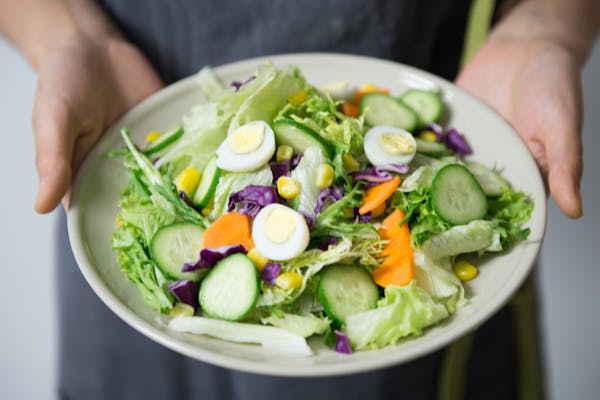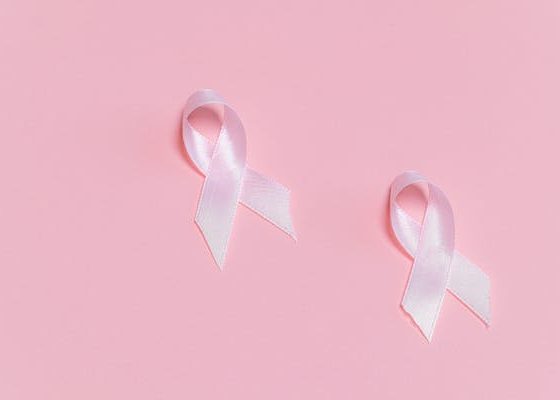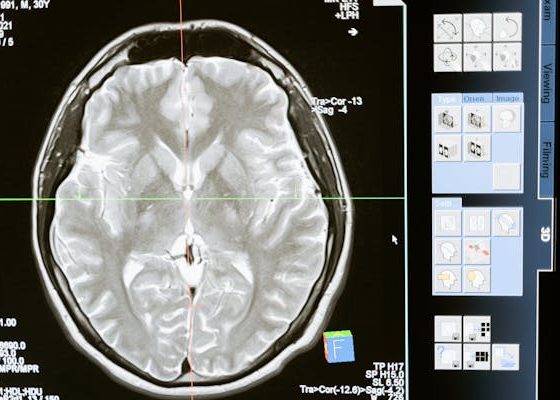Cancer is a global health concern, affecting millions of people every year. While advancements in medical research have improved treatment options, prevention remains a crucial strategy in reducing cancer incidence. One of the most effective ways to prevent cancer is through diet and lifestyle changes. This is where the concept of the Anti-Cancer Diet comes into play.

An Anti-Cancer Diet is not a single set of rules but rather a collection of dietary habits and food choices that have been shown to reduce the risk of cancer. This article delves into the principles of the Anti-Cancer Diet, examines specific foods that have been found to lower cancer risk, and provides practical guidelines for incorporating these foods into your daily life.
The Link Between Diet and Cancer
The relationship between diet and cancer is well-documented. Studies show that nearly 30-40% of cancers can be prevented by maintaining a healthy diet, staying physically active, and avoiding harmful habits like smoking. Certain foods can either increase or decrease cancer risk, depending on their nutritional composition, antioxidants, and the way they interact with the body’s biological processes.
A diet rich in whole, plant-based foods like vegetables, fruits, whole grains, and legumes, while minimizing processed foods and red meat, can help protect against cancer. Conversely, a diet high in processed foods, sugar, unhealthy fats, and red meats may increase the risk of various types of cancer, including colorectal, breast, and prostate cancers.
Principles of the Anti-Cancer Diet
To craft an effective Anti-Cancer Diet, it’s essential to focus on foods that provide powerful nutrients, antioxidants, and anti-inflammatory properties. Below are the key principles of an Anti-Cancer Diet:
- Emphasize Plant-Based Foods
Plant-based foods, especially fruits and vegetables, are rich in antioxidants and phytochemicals that protect cells from damage, reduce inflammation, and help detoxify the body. These foods are often high in fiber, which can lower cancer risk by aiding in digestion and promoting a healthy gut microbiome. - Eat a Rainbow of Fruits and Vegetables
Different colored fruits and vegetables contain varying types of nutrients, antioxidants, and phytochemicals. For instance, the lycopene in tomatoes, anthocyanins in berries, and beta-carotene in carrots each play unique roles in fighting cancer. Eating a wide variety ensures you get a broad spectrum of cancer-fighting compounds. - Increase Fiber Intake
High-fiber diets have been linked to a lower risk of colorectal cancer. Fiber helps move food through the digestive tract, which can reduce the time harmful substances spend in contact with the colon. Fiber-rich foods also support a healthy gut microbiome, which is increasingly being recognized for its role in immune function and cancer prevention. - Minimize Processed and Red Meats
Consuming large amounts of processed meats, such as bacon, sausages, and hot dogs, has been associated with an increased risk of colorectal cancer. Similarly, red meats, like beef, pork, and lamb, have been linked to a higher risk of certain cancers when consumed in excess. Limiting these foods is a crucial aspect of an Anti-Cancer Diet. - Limit Sugary and Processed Foods
A diet high in sugar and refined carbohydrates can lead to obesity, which is a major risk factor for several types of cancer, including breast, endometrial, and colorectal cancer. Reducing sugar intake and focusing on whole, unprocessed foods can help maintain a healthy weight and reduce cancer risk. - Incorporate Healthy Fats
Not all fats are bad. Omega-3 fatty acids, found in fatty fish like salmon, as well as in flaxseeds and walnuts, have anti-inflammatory properties that may reduce the risk of cancer. On the other hand, trans fats and excessive saturated fats, often found in processed and fried foods, should be avoided. - Stay Hydrated
Water is essential for overall health and aids in the elimination of toxins from the body. Adequate hydration supports healthy digestion, which is key for cancer prevention. Drinking plenty of water, as well as incorporating hydrating foods like cucumbers and watermelons, can help you maintain optimal health.
Top Anti-Cancer Foods
Let’s explore some of the most potent anti-cancer foods that should be included in your daily diet:
1. Cruciferous Vegetables
Cruciferous vegetables, such as broccoli, cauliflower, Brussels sprouts, and cabbage, contain sulfur-containing compounds like sulforaphane and indoles. These compounds have been shown to have anti-cancer properties by promoting the elimination of carcinogens and inhibiting cancer cell growth. Broccoli, in particular, has gained a reputation for its high levels of sulforaphane, which may reduce the risk of cancers such as breast, lung, and prostate.
2. Leafy Greens
Dark, leafy greens like spinach, kale, and collard greens are packed with vitamins, minerals, and antioxidants that may protect against cancer. They are particularly high in folate, a B vitamin that supports DNA repair and replication, reducing the risk of DNA mutations that can lead to cancer.
3. Berries
Berries, including blueberries, strawberries, and raspberries, are rich in antioxidants such as vitamin C and anthocyanins. These antioxidants neutralize free radicals that can damage cells and lead to cancer. Studies suggest that the high levels of ellagic acid in berries may reduce the risk of esophageal, colon, and breast cancer.
4. Garlic and Onions
Garlic, onions, and other allium vegetables contain sulfur compounds that may reduce the risk of stomach, colorectal, and prostate cancer. These compounds enhance the body’s detoxification processes and may inhibit the growth of cancer cells. Garlic, in particular, has been studied for its potential role in preventing colorectal cancer.
5. Tomatoes
Tomatoes are an excellent source of lycopene, a powerful antioxidant that has been linked to a reduced risk of prostate cancer. Lycopene is most readily absorbed when tomatoes are cooked, so tomato-based sauces and soups are great options. Additionally, lycopene may protect against lung, breast, and stomach cancers.
6. Turmeric
Turmeric is a spice commonly used in Indian cuisine and contains a compound called curcumin, which has potent anti-inflammatory and antioxidant properties. Curcumin has been studied for its ability to suppress the proliferation of cancer cells and reduce tumor growth in several types of cancer, including breast, colon, and pancreatic cancers.
7. Green Tea
Green tea is rich in catechins, a type of antioxidant that may inhibit the growth of cancer cells and reduce tumor formation. Some studies have linked regular consumption of green tea with a reduced risk of cancers such as breast, prostate, and colorectal cancer. Drinking a few cups of green tea daily can be an easy addition to your Anti-Cancer Diet.
8. Whole Grains
Whole grains, such as brown rice, quinoa, oats, and barley, are rich in fiber, vitamins, and minerals. They support healthy digestion and help regulate blood sugar levels, which can reduce the risk of obesity—a known cancer risk factor. The fiber in whole grains also promotes a healthy gut microbiome, further protecting against colorectal cancer.
9. Nuts and Seeds
Nuts and seeds, including almonds, walnuts, flaxseeds, and chia seeds, are excellent sources of healthy fats, fiber, and antioxidants. Flaxseeds, in particular, are high in lignans, which have been shown to reduce the risk of breast and prostate cancer. Including a handful of nuts or seeds in your daily diet can provide valuable cancer-fighting nutrients.
10. Fatty Fish
Fatty fish like salmon, mackerel, and sardines are rich in omega-3 fatty acids, which have anti-inflammatory properties that may reduce the risk of cancer. Studies suggest that omega-3s may lower the risk of breast, prostate, and colorectal cancers. Additionally, fish is a lean protein source, making it a healthier alternative to red meat.
The Role of Inflammation in Cancer
Chronic inflammation is a key driver of many chronic diseases, including cancer. An Anti-Cancer Diet should focus on reducing inflammation in the body. Foods that are high in antioxidants, omega-3 fatty acids, and fiber can help combat inflammation. On the other hand, processed foods, refined sugars, and unhealthy fats contribute to inflammation and should be avoided.
Inflammation can damage healthy cells and lead to mutations that increase cancer risk. By choosing anti-inflammatory foods, you can reduce chronic inflammation and protect your cells from damage. Foods like turmeric, leafy greens, berries, and fatty fish all have anti-inflammatory properties that can help prevent cancer.
Avoiding Carcinogens in Food
Carcinogens are substances that can cause cancer by altering DNA or promoting cancer cell growth. Some carcinogens occur naturally in foods, while others are introduced during processing or cooking. Minimizing exposure to carcinogens is a key component of an Anti-Cancer Diet.
- Processed Meats: Processed meats like bacon, sausages, and deli meats contain nitrates and nitrites, which can form carcinogenic compounds when cooked at high temperatures. Limiting these foods is essential to reducing cancer risk.
- Grilled and Fried Foods: Cooking meats at high temperatures, especially grilling and frying, can produce carcinogenic compounds called heterocyclic amines (HCAs) and polycyclic aromatic hydrocarbons (PAHs). To reduce your exposure, try to bake, steam, or broil your meats instead of grilling or frying them.
- Acrylamide: Acrylamide is a chemical that forms in starchy foods, like potatoes, when they are cooked at high temperatures, such as during frying or baking. Limiting fried foods and opting for boiling or steaming can help reduce acrylamide exposure.
Lifestyle Factors Beyond Diet
While diet plays a significant role in cancer prevention, it’s important to consider other lifestyle factors that can influence your cancer risk. These include:
- Physical Activity: Regular physical activity has been shown to reduce the risk of several types of cancer, including breast, colon, and endometrial cancer. Aim for at least 150 minutes of moderate exercise or 75 minutes of vigorous exercise per week.
- Weight Management: Maintaining a healthy weight is crucial in reducing cancer risk. Obesity is linked to an increased risk of several cancers, including breast, colon, and pancreatic cancers. A balanced diet and regular physical activity can help you achieve and maintain a healthy weight.
- Avoiding Tobacco and Limiting Alcohol: Smoking is a major risk factor for many cancers, including lung, throat, and mouth cancer. Limiting alcohol consumption is also important, as excessive alcohol intake can increase the risk of cancers such as breast, liver, and esophageal cancer.
Practical Tips for Following an Anti-Cancer Diet
Adopting an Anti-Cancer Diet may seem overwhelming, but it doesn’t have to be. Here are some practical tips for incorporating cancer-fighting foods into your daily routine:
- Plan Your Meals: Take time each week to plan your meals and snacks around whole, plant-based foods. This will make it easier to avoid processed and unhealthy foods.
- Shop Smart: When grocery shopping, focus on the outer aisles where fresh produce, whole grains, and lean proteins are typically located. Avoid the inner aisles filled with processed and packaged foods.
- Cook at Home: Preparing meals at home allows you to control the ingredients and cooking methods, reducing your exposure to unhealthy fats, sugars, and carcinogens.
- Experiment with New Foods: Try incorporating new fruits, vegetables, and grains into your diet. This not only makes meals more interesting but also ensures you’re getting a wide range of cancer-fighting nutrients.
- Stay Consistent: While it’s okay to indulge occasionally, consistency is key when it comes to cancer prevention. Focus on making healthy choices the majority of the time.
Conclusion
An Anti-Cancer Diet is one of the most powerful tools we have in the fight against cancer. By emphasizing plant-based foods, reducing processed foods, and adopting healthy cooking methods, you can significantly lower your cancer risk. While no single food or diet can guarantee cancer prevention, the combination of nutrient-dense, whole foods can provide a strong defense against this disease.
Ultimately, the Anti-Cancer Diet is about making sustainable, long-term changes that support overall health and well-being. By following the principles outlined in this article, you can take proactive steps to protect yourself from cancer and improve your quality of life.







